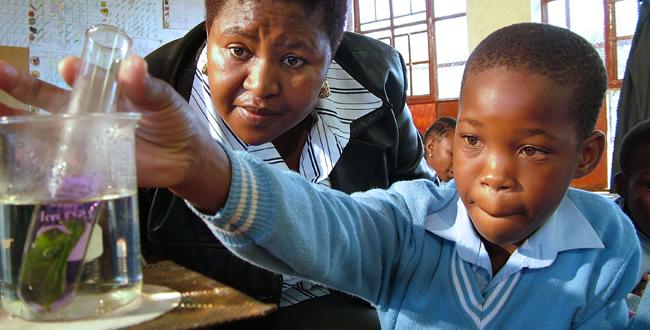Africa/Zimbabwe/24 de Julio de 2016/Fuente: All Africa – The Herald
RESUMEN: El AEAA es un simposio donde los investigadores, educadores, asesores y proveedores de servicios de las instalaciones educativas se unen y presentan trabajos sobre el tema y los subtemas de la conferencia en particular. Este año, la conferencia se está ejecutando bajo el tema:Promoviendo el Desarrollo Integral a través de iniciativas de evaluación educativa innovadora. La evaluación educativa busca determinar qué tan bien los estudiantes están aprendiendo y es una parte integral de la búsqueda de la mejora de la educación. Proporciona retroalimentación a los estudiantes, educadores, padres, responsables políticos y al público acerca de la eficacia de los servicios educativos. El objetivo principal de este evento es abordar y explorar las áreas estratégicas y conocimientos para mejorar la calidad de la educación. Se dedica a proporcionar un foro para la discusión de ideas y cuestiones de evaluación en la educación. Educadores, administradores, investigadores y estudiantes comparten sus experiencias, conocimientos e innovaciones con respecto a la enseñanza y el aprendizaje acerca de las prácticas para una educación de calidad.
The Zimbabwe School Examinations Council (ZIMSEC) is next week hosting the 34th Association for Educational Assessment in Africa (AEAA) Annual conference 2016 in Victoria Falls. We are excited to be hosting the whole of Africa in Victoria Falls from Monday July 25 to Friday July 29, 2016, especially after the successful hosting the Southern Africa Association for Education Assessment (SAAEA) annual conference in 2015.
The AEAA is a non-profit making organisation established to promote co-operation among examining and assessment boards and organisations in Africa.
The AEAA was established following the incorporation of other African states into what was known as the sub-regional conference for heads of institutions responsible for Educational Assessment in Eastern and Southern Africa (AEBESA) whose founding members were Kenya, Uganda, Tanzania, Botswana, Lesotho and Malawi.
This change from AEBESA to AEAA took place in Arusha, Tanzania in the year 1992. The primary objective of this event is to address and explore the strategic areas and knowledge for improving quality of education.
It is dedicated towards providing a forum for discussing ideas and issues in assessment education. Educators, administrators, researchers, and students share their experiences, expertise, and innovations regarding teaching and learning about practices for quality education.
To get a clearer picture of why the conferences are so vital, we may need to elaborate on the terms.
According to some scholars «Assessment is essential not only to guide the development of individual students but also to monitor and continuously improve the quality of programmes, inform prospective students and their parents, and provide evidence of accountability to those who pay our way.»
That is to say, «Educational assessment seeks to determine how well students are learning and is an integral part of the quest for improved education. It provides feedback to students, educators, parents, policy makers, and the public about the effectiveness of educational services.»
n order for the assessment to be relevant and efficient it is necessary therefore for research and concepts to be discussed to help educational systems achieve best practice.
Strategies to improve the assessment of students are all birthed out of research and continuous development of the educational systems to provided full and adequate education and consequently assessment for all.
The AEAA is a symposium where researchers, educators, assessors and educational facility service providers come together and present papers on the theme and sub-themes of that particular conference. This year the conference is running under the theme:
Promoting Holistic Development through Innovative Educational Assessment Initiatives.
Sub-themes are:
1. SBA and Learner Empowerment.
2. Language Assessment for Holistic Development.
3. Promoting Learning through Assessment/Assessment for Learning
4. Assessment of Soft Skills.
5. Assessment Standards for Holistic Development.
6. Equalising Opportunities through Assessment.
7. The Utility of ICT in Assessment.
8. Sustainable Integrity Systems for High Stakes Examinations.
Registration for the conference is still in progress although submission of Abstracts has closed.
Fuente: http://allafrica.com/stories/201607220060.html
Fuente de la imagen: http://educationzimbabwe.madeinzim.com/education.html








 Users Today : 187
Users Today : 187 Total Users : 35459782
Total Users : 35459782 Views Today : 347
Views Today : 347 Total views : 3418319
Total views : 3418319